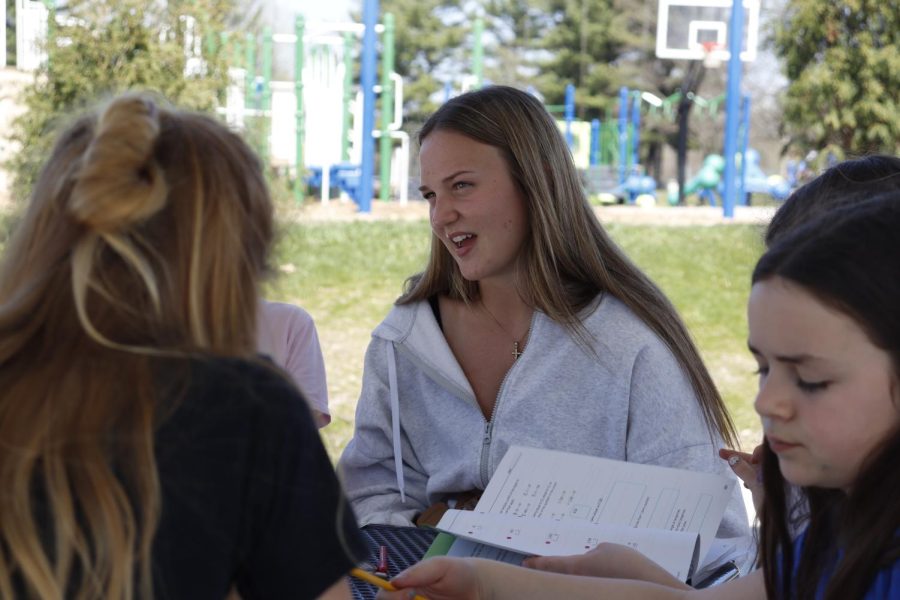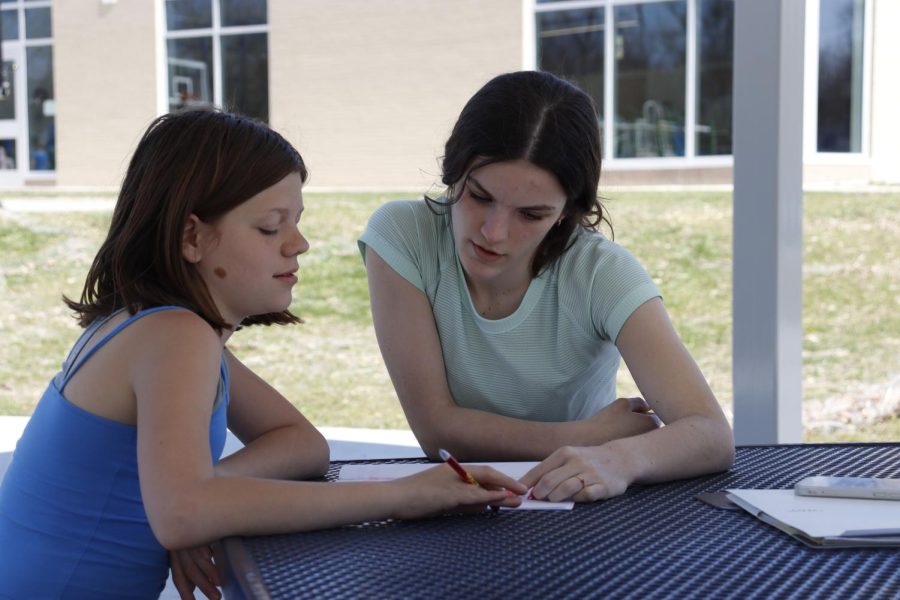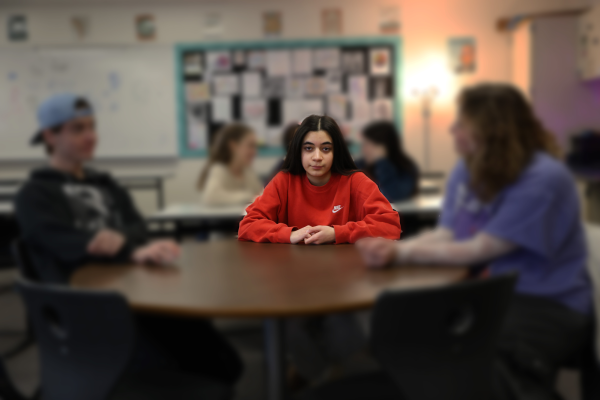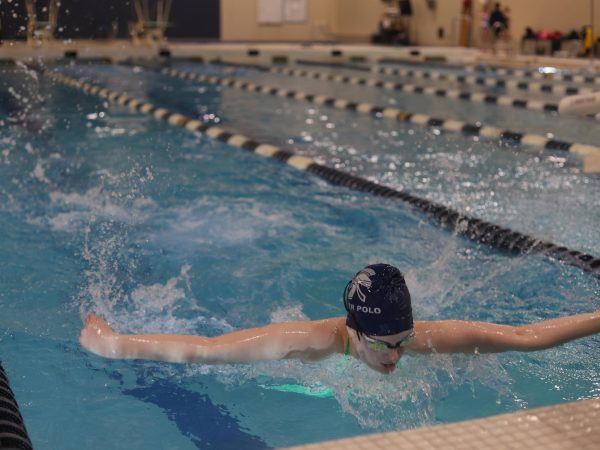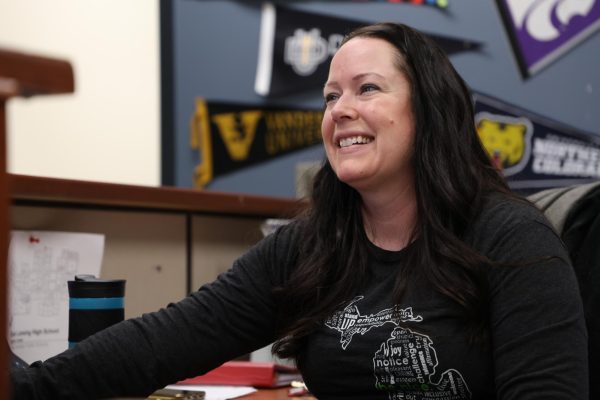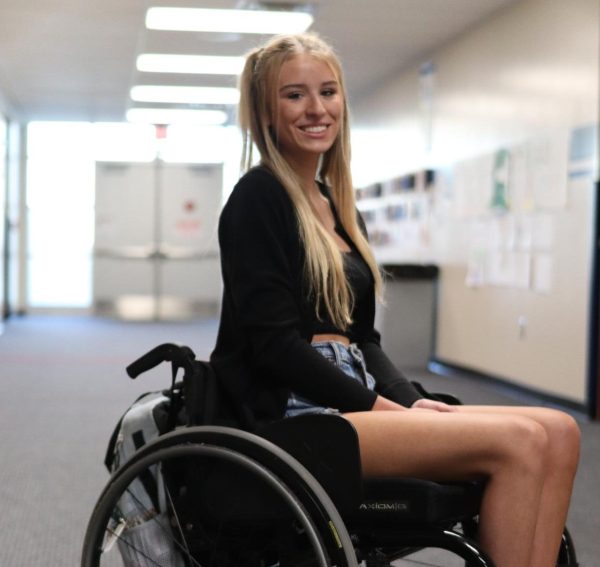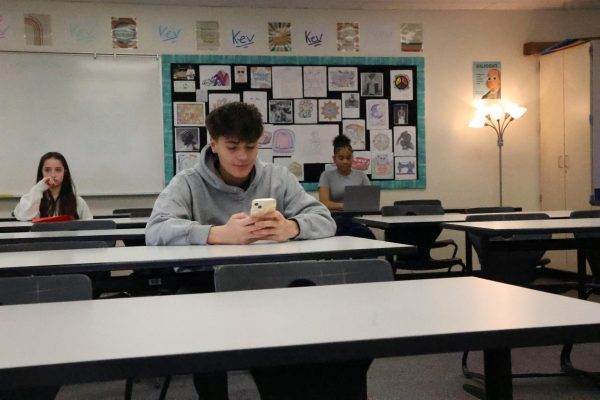Something to Count on
Upperclassmen instruct elementary students through Math Mentoring class
Throughout her life, math teacher Amy Sayers has always agreed with the Montessori philosophy of elders helping the young. She wanted to translate that into the high school students helping younger elementary kids. After hearing that many of her high school students began struggling with math in their late elementary years, she wanted to think of a way to help the future high school students succeed and enjoy math.
“I would have these freshmen come to me and say, I can’t understand math, I’m not good at math,” Sayers said. “ I was asking my son, ‘when did you start struggling with math’ and he said it was in elementary school and the beginning of middle school.”
A former teacher of Sayers, from Ann Arbor Pioneer, started a program called Trailblazers in which students at the high school would mentor younger students every day of the week. After hearing about this, Sayers began planning her own version of the course, which is now in its sixth year.
“The math mentors help the younger kids with gaining confidence in their math, and they help them with looking at a positive peer relationship,” Sayers said.
Essentially, math mentors is a program in which older students go to the elementary schools to teach the younger kids who struggle with math. It creates positive peer relationships and helps them gain confidence with math at an early age.
“The kids love seeing you and they get really excited.” Anna Rensing (11) said.
When signing up for this class, Rensing was most excited about being able to leave school early. However, she quickly learned the class had much more to offer than she originally thought.
“I love it,” Rensing said. “It’s pretty easy, but you get stuff out of it too and you’re also helping another kid.”
During the class time, Sayers spends her time focusing on answering the questions her mentors may have. They work on projects, watch documentaries and prepare for their upcoming lessons.
“I look at myself as trying to mentor my students, so they mentor the other students,” Sayers said.
Despite all the work, the math mentors say the course is rewarding. Much like Rensing, Lauren Garrett (11) also signed up to have an e
asy class and leave school early. Throughout the year, her mindset changed completely. After spending this past year with a single kid, watching them grow and learn new things, she felt very proud and hopes to continue to see more improvements in their math.
“I like seeing your students understand the material better as you work with them,” Garrett said. “Sometimes it’s hard to explain to the little kids because the way you explain it just doesn’t make sense.”
The course has become popular and both the mentors and the kids love it. Sayers hears positive feedback from teachers all the way to secretaries and custodians.
“The elementary teachers have noticed a difference with this group,” Sayers said. “They’ve seen that their students are feeling more confident with math.”
The class has also proven to help the mentors with their current math curriculum. Going back and practicing old math skills has even proven to help students excel in their advanced math classes.
“I’ve had students who are in calculus doing this and saying, you know, ‘I am doing a lot better in calc because of my mental math skills of working with these students here’,” Sayers said.
Overall, Math Mentoring is a course that requires a lot of responsibility, but students believe watching their mentee grow and progress througho
ut the year is an extremely rewarding experience. “The kids can get pretty discouraged so you kind of have to work with them a lot,” Ren
sing said. “It takes a lot of patience, but it’s worth it.”
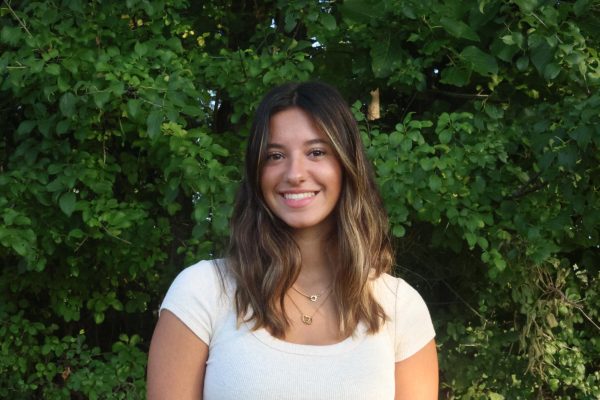
Anita Pereira Nunes is a member of the Class of 25’ and one of the Copy Editors for Portrait. This is her second year on staff as a senior, her first...
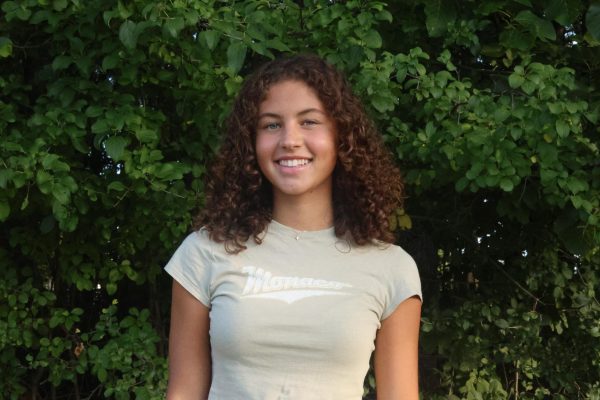
Elizabeth Gisholt is a member of the Class of 2025 and one of the staff writers for Portrait. This is her second year on staff as a senior. Elizabeth’s...

Quinn Martin is a member of the Class of 2024 and is the Photo Editor of Portrait. He has been on staff since his sophomore year during the 2021-22 school...



